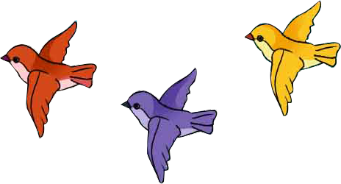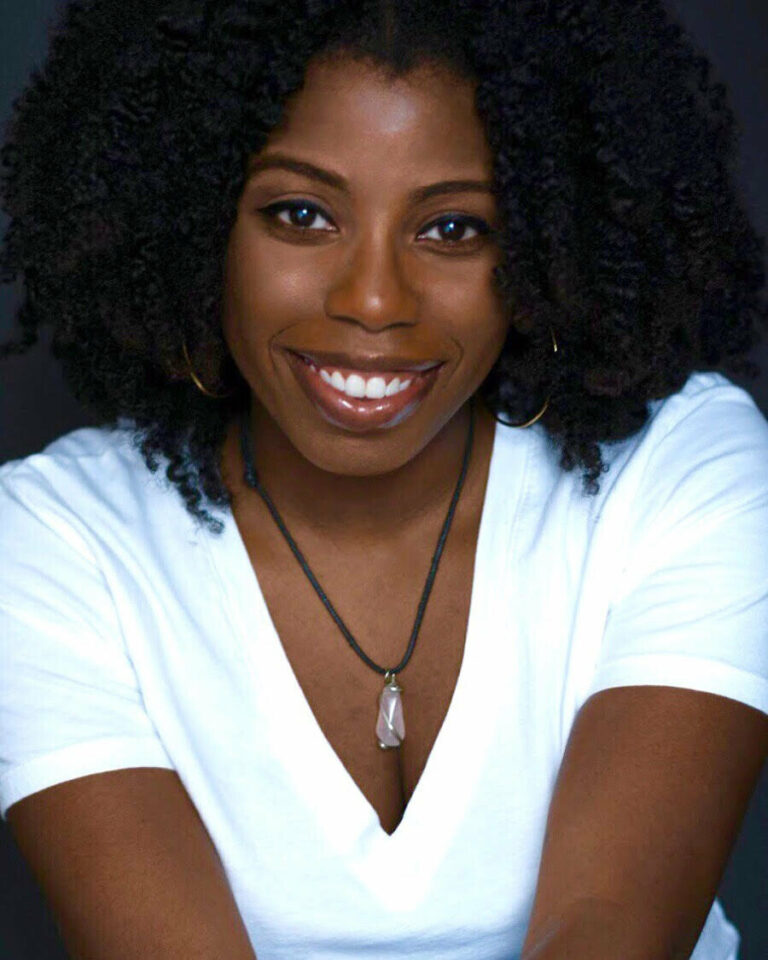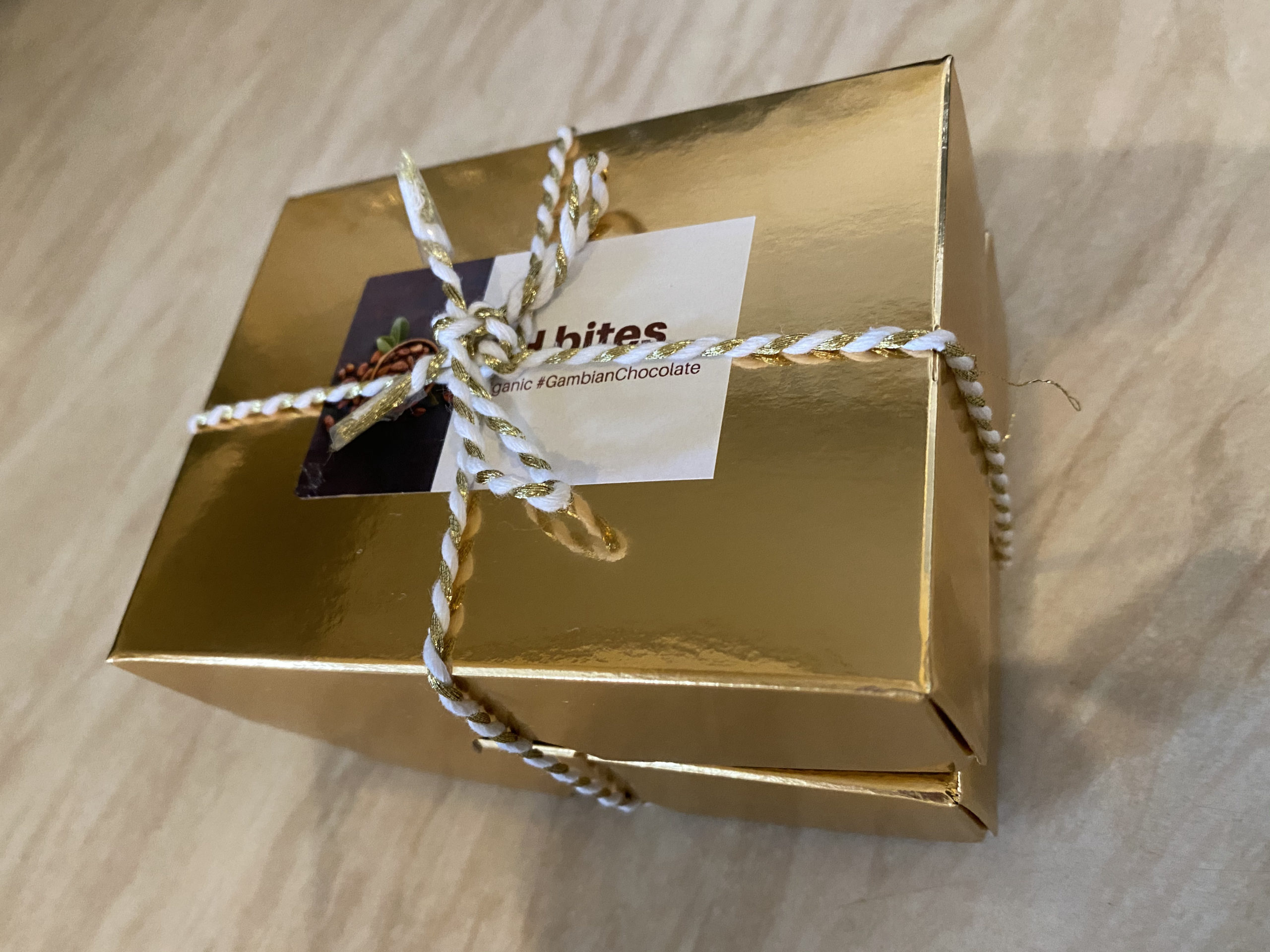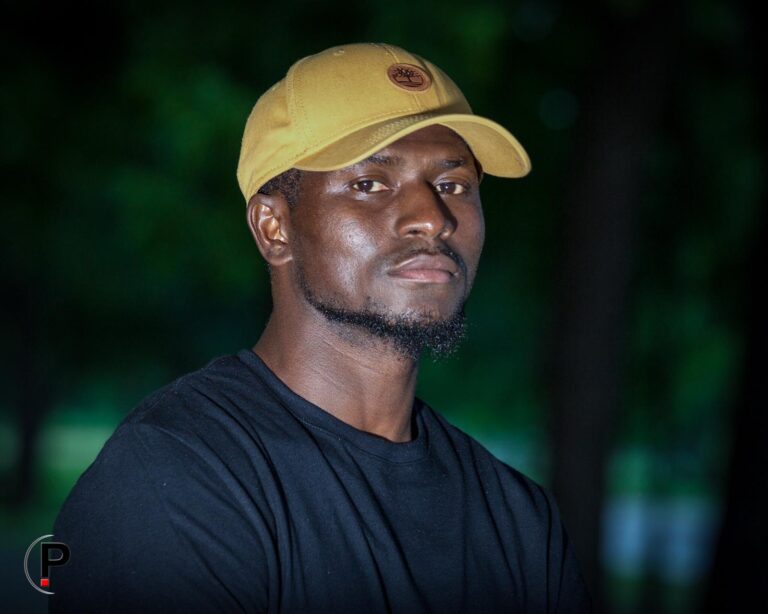There is nothing like a good beat made from authentic African instruments such as the balafon, bolon and gongo to get your Monday started off right! The lovely sounds these instruments make together is the music of Guinea’s Toumaranke band. The makeup of the band is very interesting and befitting of it’s name as Toumaranke means outsider in Susu (one of the more common Guinean languages). The members of the band consist of one British woman from the UK and six Guinean men. While the formation of this band is quite interesting (learn more), we were more interested in the affect culture and race has had on their journey thus far.
Chris Sylla, is the only female and caucasian women in the band. She is also the band’s manager, spokesperson due to the literacy challenges of all other band members, and wife to its lead singer, Moussa Sylla.
We asked them to share their story.
1. What are your biggest musical influences?
For the Guineans in the group these have largely been the people around them as they come from a land with a rich musical tradition. All our instruments, apart from the tambourine, are traditional, handmade (often by the musicians themselves) and widely played in Guinea in both a professional and amateur capacity. Sixth-sevenths of the band grew up living in this musical landscape and its influence cannot be underestimated. The band members regard with pride a musical heritage which goes back to the great 1950’s troupes such as Les Ballets Africains acting as ‘ global musical ambassadors’ for West African music. Our lead balafon (West African xylophone) player is of Griot (hereditary musicianship) lineage so his training began as a child inside his family and that continues to shape his work. The griot style of taking known ‘folk’ songs and reworking them to fit current circumstances, as well as the call and response way of singing is a big influence on the whole band. This traditional grounding has then been tempered by listening to popular West African music on the radio, Jazz influenced groups such as Bembeya Jazz, who were very popular in Guinea from the 60’s to the 80’s, plus interacting with other working musicians.
The band leader, Moussa Sylla, whose father ran a musical group, was particularly influenced by an early teacher – Mohammed Sylla – in developing the style of his gongo (Guinean idiophone) playing. In terms of other groups both Les Etoiles de Boulabinet. and Espoirs de Coronthe popular in Guinea but largely unknown outside of it, have helped shape us musicially. Although they use slightly different combinations of instruments these groups have a similar ‘feel’ to toumaranke and also use the stuff of everyday African life – the poverty, the lack of clean water/electricity, the need to help each other, co-operate and function as a group. For me, my biggest musical influence is Moussa himself as he’s one of my main teachers as well as the leader of the band and my husband.
2. The Role has ‘race’ played in our journey both creatively and business-wise?

As a group of six West African men and one white British woman who do not all speak the same languages we’ve faced many challenges…I am an outsider to the culture the music comes from; the others live inside of those traditions. The very visible difference between us is that everyone is black and male expect one, who is white and female, in a way we immediately put ‘race’ (or at least colour) on the agenda. European and African ways of learning and playing music are not the same and neither are the linguistic and emotional structures which we use to negotiate everyday life. The music is ‘classical’ West African, completely embedded in the complex living musical tradition of Guinea with it’s many tribal strands (the band is largely Susu but that’s just co-incidence) and a strong sense of community and connection.
The social and financial inequalities between the UK and Guinea/Gambia means that issues around education and material life-chances have had a much bigger impact on the group than ‘race’ itself. The only reason we managed to record and produce our own music is because one of us, me, is literate/computer literate. Without the skills I’ve built on from my Western education the project would not have been possible. Musically the conception for the album came from my husband, Moussa Sylla, practically it was down to me. Education levels in the band range from me with a Master of Arts degree to a couple of band members with very little formal schooling at all, and most of them are still living in very basic accommodation without running water. I grew up taking meals for granted, they did not. The effects of poverty, not just materially but in the way shortages affect ways of thinking and acting, are long-lasting. The others have a strong sense of ‘race’ of pride in being Africans, for me this aspect of my identity is less ‘precious’, being ‘British’ isn’t all that emotionally important to me.
Because of my educational advantages the role of group ‘manager’ and organiser automatically falls to me. I had to take total control of the financial side of the (CD) project as I’m the only band member with budgeting skills. I’ve also had to shoulder the responsibility of collecting and dividing the profits as I have easy access to a bank account and a lifestyle that makes putting money ‘aside’, rather than immediately buying food with it, a possibility. I’ve been forced into a manager/promoter role by dint of circumstances, rather than choosing this position.
3. What has been the most challenging aspect of your journey?
This can be summed up in one word – poverty. The African members of the band live in very challenging economic and material conditions and I’m now in a very precarious financial state. Poverty is NOT an ennobling condition; it causes suffering, despair, suspicion, betrayal, small-mindedness, stress and many other negative thoughts and behaviours. It’s hard for a lot of people in the West to really understand the physical hardships of those who are forced to live in ‘structural poverty’ in West African societies (not always having enough to eat not being an experience most people have had or can understand) . It was hard for me, during the fundraising campaigns to know quite how to ‘present’ us. Difficult to ‘explain’ the realities of the lives of my band-members without presenting an overwhelmingly negative picture or coming across as ‘desperate’ . We wanted the music to be our signature and what’s interesting about us, not the poverty in which most of us were (and still are) trapped. Although our story IS about getting our music out into the world despite the obstacles caused by economic limitations it’s the MUSIC that’s important not the straightened economic circumstances.
‘The music industry’ is a bit of a misnomer, even today when it’s assumed everything is ‘global’ and international. There’s a bewildering number of internet radio stations and social media platforms and ‘music promotion services’ . Toumaranke don’t fit neatly into any kind of media ‘box’ and this has also been challenging for us as a group. Companies such as CD Baby, Amazon and so on are set up in a eurocentric fashion and generally have to be ‘registered’ with. Music downloading sites require categorization, but Susu, the main language we sing in, is not given an option, and there is no ‘other’, so no category that we fit in! Such sites suggest we list the music as English (the track notes on the Cd are written in English) , but it is very far from English so this is an obstacle we have not been able to overcome. There is also the problem of bureaucracy and it’s stranglehold on Western life. Registering ‘rights’, etc means having fixed addresses, verifiable identification documents and other necessities difficult to explain to both the poor person I’m talking to on the phone about PPL (music licensing, collecting royalties etc…) or the increasingly wide-eyed band member I’, trying to pin down. Like the inevitability of my becoming manager for the group I’m also officially ‘acting for’ Moussa, the rightsholder for the music, as I have traceable documents.
4. What are the top three business lessons you have learned as musician?.
Strategy – the importance of planning ahead, a timetable for each stage of a project. Working with the skills in a group – who’s good at what and how to play to those strengths? Identifying what we don’t have the skills to do and planning for how we can get those from other areas.
Creative budgeting – what do we have that’s not cash that others might need/want? We we made our funds go further by using skills swaps;
Good communication and networking – the power of people!
What I’ve personally learned is how many skills it takes to record and release music. Looking back on the crowdfunding campaign the initial video makes me wince. I’ve learned a lot about video editing, design and layout skills, use of ‘social media’ and a little (but not enough) about marketing. I’ve also learned that western ideas about marketing and business are not easily translated and it’s hard to get information or advice about how to apply these to West Africa.
A marketing strategy is where we fell down, especially a marketing strategy for the end product – our CD – which we didn’t have. We were concentrating so much on the process – HOW to get to the point when we’d actually got from the concept of an album to physically possessing several thousand copies of it that we lost sight a bit of WHAT we were going to do with it. We felt, as possibly all emerging artists do, that the music was so good it would simply sell itself… It is good, it’s a really fine first piece of work, but it’s also niche and competition in the eurocentric world of music publishing is fierce and geared to a much ‘slicker’ product. When we create our second CD (hopefully later this year) we will approach some things in the same way, but we’ll have a much stronger strategy for marketing and distribution on both sides of the Atlantic. This may in fact need to be two separate strategies.

5. What do you hope to accomplish in the long-run?
As a band what we have accomplished in the short-term is an independently recorded and released debut CD, a massive creative achievement against all the odds, which has not only broken even in financial terms but is generating a small amount of revenue and has the potential to create more in both West Africa and the European & America ‘world music’ market.
In the long-run we’d like to build on that success, financially and creatively. It is important for us to generate some income from our music to support the band. We would like to do this through sales of the CD and through paid live performance, in West Africa and globally. It would be a dream for the band to play at the WOMAD festival or other world music festivals.
We’d also like to be able to move forward with our musical development as a group. To live and work together, at least some of the time; to bring our music into the world and to record a second CD, to develop the ‘remix’ side of the music (we’ve had one done and are very pleased with the results), to break into the Guinea music scene We’d like a base in Gambia for the band, rented at first but eventually owned by us all, so everyone can have somewhere to stay and we’ve got a work space for practise, with a secure lock-up for our equipment. We’d like to develop the workshop side of what we do, we’re a fine team and we’ve got a lot to offer. To do this it’s also necessary for me to earn the £18,600 per year that will enable Moussa to come to the UK on a spouse visa so that we can live in the same country and get on with not just our marriage but our ‘life’s work’ together.
We’d like to ‘skill up’ in many areas, eventually run our own recording studio in Gambia or Guinea and pass on our knowledge to others. To do this we’d want enough money to send most of the band on a basic ‘internet training’ course in Gambia and at least one of them to go on to study music technology. We have one band member who’s got just the right kind of mind to be our ‘toumaranke technician’! I’d like to buy a better laptop and learn video editing skills. We’d like more and better equipment; we’d like to own more than two decent microphones, we’d like to replace some of the instruments damaged by water and termites with new ones. The band, except for me, need passports…. I’d like to buy a better laptop and learn video editing skills and for us to get to the stage when we can afford a separate paid administrator/manager/ producer so I’m freer to get on with creative work of composing and playing music.
In the long-run we’d like to build on tour success, financially and creatively. It is important for us to generate income from our music to support the band. We would like to do this through sales of the CD and through paid live performance, in West Africa and globally. It would be a dream forusto play at the WOMAD festival or other world music festivals. We’d love to tour, starting with West Africa and the UK. This is a multi stranded plan with some very specific practical aspects – getting to grips with next steps to take to professionalize our videos, more fundraising, planning a campaign for the next CD project… In short we want to grow, to develop. We are Toumaranke – everybody dance…
The OSOW Fast Three!
1. What are your favorite AfroBeat songs?
I like Fela Kuti but don’t have a particular favorite song.
2. If you could have lunch with any person, who would it be and why?
I would have lunch with my husband, Moussa Sylla as visa issues mean we can’t live together in the same country so we only see each other twice or 3 times a year.
3. What’s your overarching vision for Africa?
Impossible question! Africa is so diverse in so many complex ways. Peace, prosperity, development so that all people can enjoy a life without hunger. We are musicians, our vision is to bring the joy of connection through African music.






Leave a Reply
You must be logged in to post a comment.